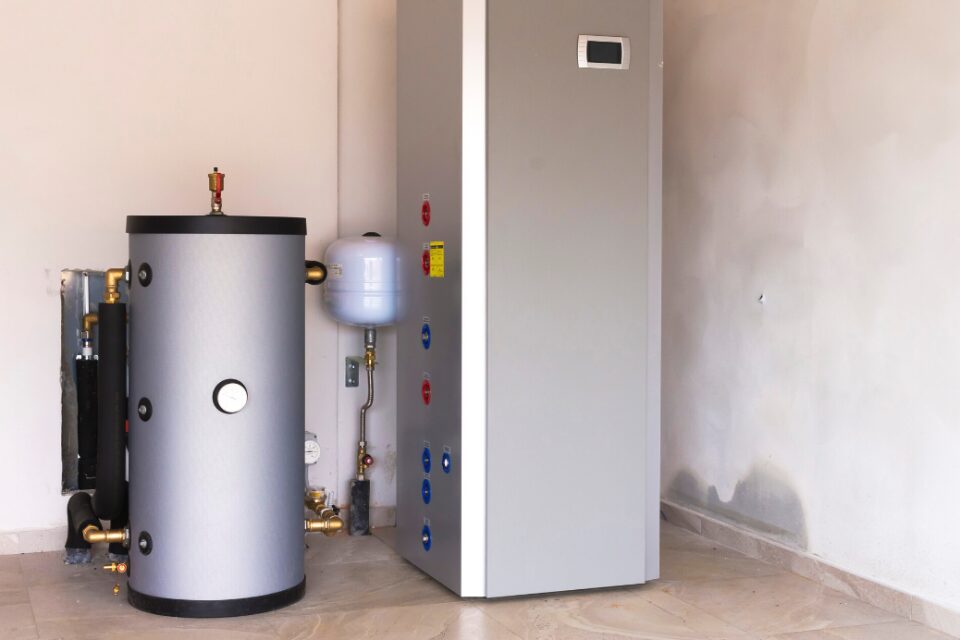Do you need a buffer vessel (or buffer tank) with a heat pump. Graham Hendra shares his thoughts on this subject.
We would like to say a huge thank you to Auream Energy for sponsoring this video. To find out more about their solar installation services please visit their website.



But wouldn’t a buffer tank allow running the heat pump water circuit pressurised, whilst allowing the existing gravity fed heating / hot water system to remain un-pressurised (thus reducing the risk of failed radiators on an old system – ours is 40 yrs old…)? I accept that the complexity is increased, but potential reliability should be increased, plus fault finding potentially simplified as ‘all’ the heat pump has to do is keep the ‘bucket of water’ at 55degC.
The buffer has nothing to do with pressurisation, most heat pumps can be either pressurised or open vented, the only unit I know of which needs to be pressurised is an Hitachi. Regarding the cylinder this can also be unpressurised or open vented, again it makes no difference. It’s your house you can have whatever you need or want.
If you have 40 year old heating it’s about time it has a refresh – trust me, it’s time to replace the rads. Would you keep a 40 year old car and hope it was reliable?
Buffers do not in anyway decrease or increase system reliability. A buffer is a throwback to the old days when we used them for short term heat storage. It’s no longer something that’s needed. Hope that helps.
And please don’t let your installer set your unit to run at 55C all the time. The efficiency will be horrible, let the unit weather compensate the radiators, it will save you a lot of money. Trust me, it will be ok.
In effect with weather compensation controls indoor and out door sensors the house becomes the thermal store as the pump is constantly using low grade heat to keep the house temperature as programmed.
If the house has low or no thermal mass you might need a buffer, to store heat, but really you shouldn’t be heating such a building!
Thanks for clarifying, Graham, and the additional info/tips especially wrt to closed / open systems (I’d only looked in any great detail at Hitachi).
PS: the car is 36 years old, and reliable, as long as it’s maintained.
Just realised it was Mitsubishi that needed a pressurised / closed system (but that was a few years ago).
Just looked at the Grant R32 tech docs https://www.grantuk.com/media/3710/grant-aerona-r32-installer-uk-doc-0136-rev-2-0-september-2020.pdf which says ‘Water pressure (system) MPa (bar) 0.1 to 0.3 (1 to 3 bar). 1 bar needs a 10m head of water – not going to get that in a 2 story house! So maybe I should ask just which ASP’s run on a low water pressure (ie gravity fed) system?